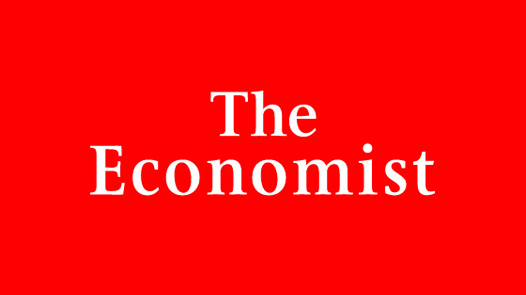Economist: Khodorkovsky gives his verdict
 SOME words become history years after being spoken. Others carry historic weight as soon as they are uttered. The last words spoken today by Mikhail Khodorkovsky, as his 18-month trial drew to a close, belong to the second category. The statement [PDF] he read out from his bullet-proof glass cage in a packed Moscow court will be cited in history textbooks, just as the case itself will be.
SOME words become history years after being spoken. Others carry historic weight as soon as they are uttered. The last words spoken today by Mikhail Khodorkovsky, as his 18-month trial drew to a close, belong to the second category. The statement [PDF] he read out from his bullet-proof glass cage in a packed Moscow court will be cited in history textbooks, just as the case itself will be.
Mr Khodorkovsky’s arrest in 2003 and the destruction of his Yukos oil company have changed Russian history, and continue to determine it. Today’s short speech was clinically accurate in its description of where, seven years later, Russia and he have ended up.
As Mr Khodorkovsky said, the people who put him and Platon Lebedev, his business partner, in prison wanted to show that they are above the law and will always get their way. “So far, they have achieved the opposite: they turned, us, ordinary people, into symbols of a struggle against lawlessness. This is not our achievement. It is theirs.”
As the second trial against Mr Khodorkovsky went on, its absurdity became more and more pronounced. In 2003, he was charged with underpaying taxes on a vast scale, and two years later was convicted and imprisoned. He was due for release in 2011. The second case tried to prove that the very object that Mr Khodorkovsky had been convicted of underpaying taxes on—the oil—was stolen in its entirety. Even some Russian officials who testified in the trial admitted that this was absurd. Yet the prosecution is demanding that Mr Khodorkovsky and Mr Lebedev spend another six years in jail.
Nobody, as Mr Khodorkovsky said today, would believe that he had stolen all the oil from his own company, even if he were to admit it. But nobody believes that a Moscow court would acquit him either. “Over these years they have begun to fear me more and to respect the law even less.” The Kremlin is right to fear Mr Khodorkovsky because his stand undermines the foundation of a system held together by corruption and the supremacy of the state—with the security services as its guardian—over an individual.
How long can such a system last? Earlier this week Mr Khodorkovsky tried to answer this question in an interview [link in English] given to Novaya Gazeta, a courageous and critical newspaper. In it, he argued that crisis will hit in about 2015, when the sinking potential of an unmodernised economy rubs up against the greed of the bureaucracy on the one hand and the material expectations of the population on the other. Exactly, in fact, what brought down the Soviet Union in the late 1980s.
Mr Khodorkovsky was nearly 25 years old in 1987 when Andrei Sakharov, Russia’s dissident nuclear scientist, was released from his exile. Describing the sense of optimism shared by his generation back then, today Mr Khodorkovsky said, “Our country was living on the hope of freedom, hope that we would be able to achieve happiness for ourselves and for our children…The responsibility for why this hope was not realised all the way, and not for everybody, probably lies on our entire generation, myself included.”
When Mr Khodorkovsky was arrested at gunpoint aboard his private jet in 2003, he was merely one of Russia’s richest oligarchs. Many of his compatriots hated him. His company, Yukos, was no more than just the country’s largest oil producer. But after seven years in jail (fortunately without torture and humiliation) he has become one of Russia’s most significant and dignified figures. Although, unlike Mr Sakharov, he is no dissident or human-rights fighter—his talents are different, and he belongs to a different time—in some ways he is as much a symbol as the scientist was in his day.
His trial has also become a trial of the political system created by Vladimir Putin, the former president and current prime minister. Nobody listening to Mr Khodorkovsky today doubted him when he said: “I am not at all an ideal person, but I am a person of an idea. For me, as for anybody, it is hard to live in jail, and I do not want to die there. But if I have to, I will not hesitate. The things I believe in are worth dying for. I think I have proven this.”
“What do you believe in?” he asked his opponents rhetorically. That the bosses are always right? Do you believe in money? In the impunity of the “system”? The judge will deliver his verdict on the two defendants on December 15th. But Mr Khodorkovsky has already delivered his.



